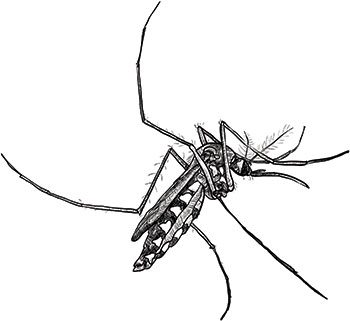In recent years due to climate change, there has been a distinct rise in vector born illnesses, more specifically mosquito-borne illnesses, such as malaria. Attempts to combat this issue mostly rely on the use of pesticides as a form of mosquito control. Luckily, a company named Oxitec have been developing gene-editing technology as a form of pest control.
Aedes Aegypti has been the most significant mosquito when it comes to carrying diseases. This species of mosquito was chosen to be tested on in order to prevent the spread of disease. This is done by using gene-editing to produce male offspring that produce female progeny that do not survive to adulthood. This technology was used in Brazil and resulted in a 90% decrease in the Aedes Aegypti population.The thought is this, with less population there is a lower possibility of contracting a mosquito-borne disease. This technology could be very useful for the United States, mostly because cases here have also been on the rise. Concerns have been brought to attention about the specific ecological concerns with gene-editing in mosquitoes. Results from trials in the Florida Keys have shown the technology to be environmentally safe and protective.
In my opinion, this technology could provide the United States with a way to control its population of mosquitoes that carry diseases. I think that gene-editing is a much better form of mosquito control than the use of pesticides.

No comments:
Post a Comment